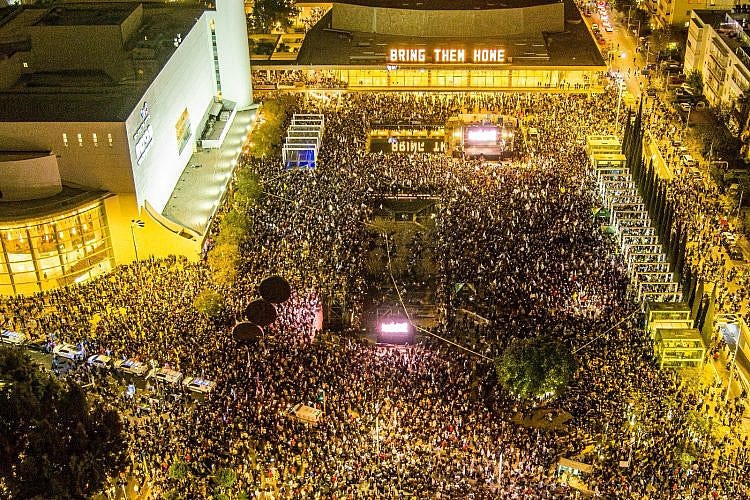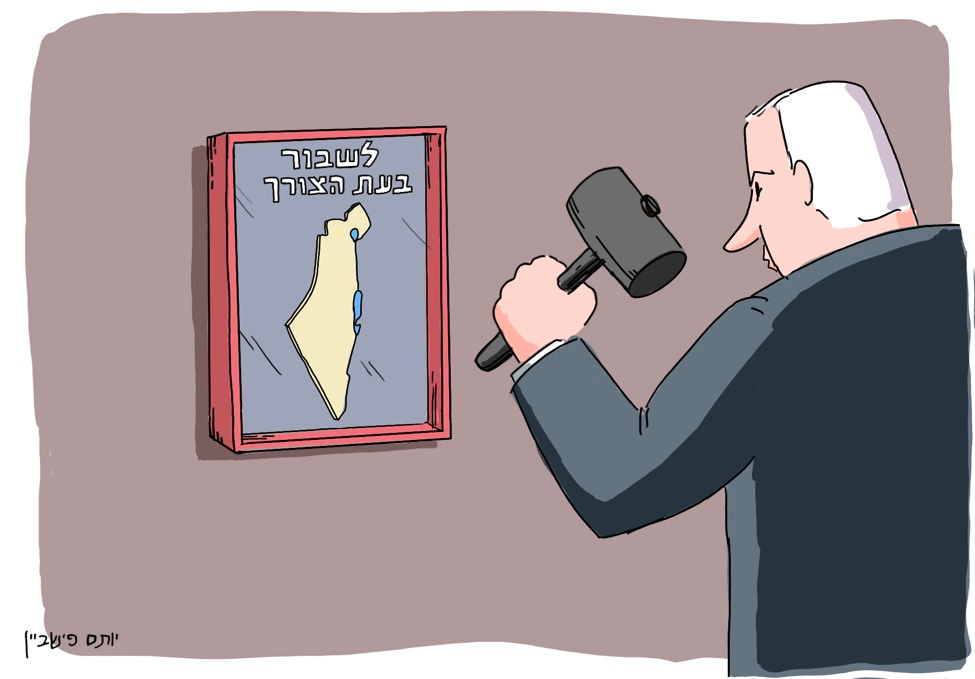Like so many parents, I get immense pleasure reading books to my children that I associate with my own childhood. Not only do I get to enjoy a moment of nostalgia, I also am offered the chance to build something new together with them.
On the top of that list lies The Chronicles of Narnia. Over the last year, I’ve been falling asleep while reading C.S. Lewis’ classic tale to my oldest daughters. Naturally, they insisted that we watch the Disney rendition of The Lion, The Witch, and the Wardrobe. So when it felt appropriate we sat down, popcorn and ice cream in hand, to enjoy a family film.
This is the film’s opening scene…
The sound of planes overhead. The sirens. The distant booms. Rushing to the shelter.
My 8-year-old turned around and said, “it is like our milchama - our war.” When Edmund rushes back into the home to retrieve a portrait of his father in uniform, even I could no longer ignore the parallels.
Every return to the past is accompanied by pain.
For many Israelis, the past week has been nostalgic in all of the wrong ways. Just take a look at the main headlines:
The Israel-Hamas ceasefire collapsed
Rocket/missile/mortar fire from Gaza, Lebanon, and Yemen resumed
Israel resumed its military campaign on Hamas in Gaza
Itamar Ben Gvir rejoined the coalition
Netanyahu fired Shin Bet chief Ronen Bar, government voted no confidence in Attorney General Gali Baharav-Miara
The events of the collapsed ceasefire, Ronen Bar’s firing, and AG Baharav-Miara’s pending dismissal triggered massive protests throughout the country
By the week’s end even those with a cast-iron stomach for Israeli politics were twinging with pain. The pace of events, and the sense of deja vu, is almost too much to bear.
What makes these circumstances truly depressing is how predictable they were. The ceasefire agreement reached in January 2025 never felt like it was made to last. As Dahlia Scheindlin correctly noted in TIME, phased deals usually don’t work in the Israeli-Palestinian conflict. There is too much time for the parties to reconsider their positions and try to leverage a better deal. By the beginning of March, US Special Envoy Steve Witkoff wasn’t facilitating talks on Phase Two, he was trying to broker a new ceasefire agreement altogether.
Ronen Bar’s firing was equally predictable. The Netanyahu government has been strategically removing the country’s military and security leadership - starting with Defense Minister Yoav Gallant, then IDF Chief of Staff Herzi Halevi and recently IDF Spokesman Daniel Hagari - in order to distance itself from the failures of October 7th. The next logical target was Bar, whose agency is investigating suspicious connections between Netanyahu’s close aides and Qatar and who has suggested that Netanyahu intentionally held up and derailed past hostage negotiations.
If the ceasefire’s collapse and Bar’s firing were easy to anticipate, the future is much harder to foresee. October 7th compelled Israelis to table the polarizing judicial reform debate in order to protect their borders from attack. However, as the tide turned and Israel gained an upper hand over its enemies, the pre-October 7th fissures have reemerged.
“A house divided against itself cannot stand.” The same logic that applied to Lincoln’s America applies to contemporary Israel. Rather than using his office to create a new coalition of consensus or present a vision for Israel’s future, Netanyahu has decided to use the war as a means to maintain his position as prime minister, delay the court cases against him, and defeat his domestic opponents. In order to achieve his aims, he has leaned heavily on the country’s limited checks and balances, banking that the Israeli public is too fatigued after years of political instability and war to put up a meaningful resistance. He also hasn’t articulated Israel’s plan for the Day After in Gaza, a deliberate effort to avoid committing to the war’s end.
Netanyahu’s tactics aren’t new. Throughout history, elected leaders have taken advantage of wartime powers in order to secure their seat, lengthening periods of conflict that could end sooner. Nor is he the only leader seeking to take advantage of a shifting global order.

But are Israelis willing to go down this path - one that assuredly will cost more human lives (Israeli and Palestinian) and may ultimately damage their country’s democratic resilience - in the hopes of achieving the pipe dream of “Total Victory”? Are we willing to potentially sacrifice the lives of the remaining 59 hostages for the sake of Netanyahu’s legal troubles and personal vendettas? Are we willing to pay for another occupation? And if we aren’t, what are we prepared to do in order to course correct?
What I’m describing isn’t a fantasy. Israel is fast approaching the Rubicon. And the dangers are real. But while many would suggest that they know with certainty what comes next I suggest something far more disconcerting: we don’t know where we are going.
Thanks for taking the time to read. As always, I welcome your comments and questions.
Best,
Gabi






